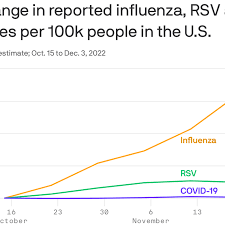How Bad Are Ultraprocessed Foods, Really?

- U.S.
- World
- Business
- Arts
- Lifestyle
- Opinion
- Audio
- Games
- Cooking
- Wirecutter
- The Athletic

How Bad Are Ultraprocessed Foods, Really?
They’re clearly linked to poor health. But scientists are only beginning to understand why.
Credit...Casey Zhang for The New York Times
Supported by
- Share full article
- 1014

- Published May 6, 2024Updated May 10, 2024
In the mid-1990s, Carlos Monteiro, a nutritional epidemiologist in Brazil, noticed something alarming: Obesity rates among children in his country were rising rapidly.
To understand why, he and his colleagues at the University of São Paulo scrutinized data on the food buying patterns of Brazilian households to see if they had changed in recent years. The researchers found that people were purchasing less sugar, salt, cooking oils and staples like rice and beans, and more processed foods like sodas, sausages, instant noodles, packaged breads and cookies.
To describe that second category of food, Dr. Monteiro said, the team introduced a new term into the scientific literature — ultraprocessed foods, or UPFs — and defined it. They would later link UPFs to weight gain in children and adults in Brazil.
Since then, scientists have found associations between UPFs and a range of health conditions, including heart disease, Type 2 diabetes, obesity, gastrointestinal diseases and depression, as well as earlier death.
That’s concerning, experts say, since ultraprocessed foods have become a major part of people’s diets worldwide. They account for 67 percent of the calories consumed by children and teenagers in the United States, for example.
But many questions remain. What are ultraprocessed foods, exactly? And how strong is the evidence that they’re harmful? We asked experts to answer these and other questions.
We are having trouble retrieving the article content.
Please enable JavaScript in your browser settings.
Thank you for your patience while we verify access. If you are in Reader mode please exit and log into your Times account, or subscribe for all of The Times.
Thank you for your patience while we verify access.
Already a subscriber? Log in.
Want all of The Times? Subscribe.


 Australia
Australia Argentina
Argentina  Austria
Austria  Brazil
Brazil  Canada
Canada  Germany
Germany  Ireland
Ireland  Italy
Italy  Malaysia
Malaysia  Mexico
Mexico  New Zealand
New Zealand  Poland
Poland  South Africa
South Africa  United Kingdom
United Kingdom  United States
United States 























